Question And Answer
Publications
Articles, publications, books, tools and multimedia features from the U.S. Institute of Peace provide the latest news, analysis, research findings, practitioner guides and reports, all related to the conflict zones and issues that are at the center of the Institute’s work to prevent and reduce violent conflict.
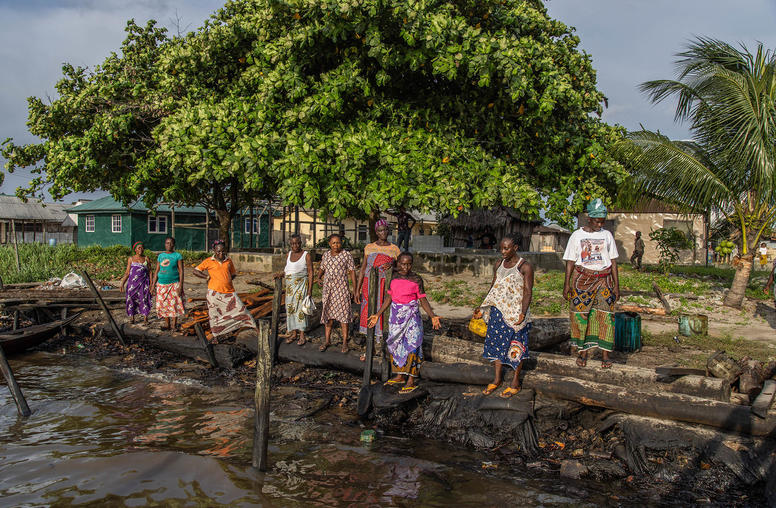
It’s Time to End ‘Business as Usual’ With Nigeria
Secretary of State Antony Blinken’s visit this week to Nigeria is timely, for Africa’s demographic giant is shuddering with its most dangerous instability in 50 years: insurgencies, uncontrolled criminality and constrictions of freedom of expression. Nigeria is failing to fulfill basic tasks of a nation-state, and its partners need to halt “business as usual” to open an honest dialogue about the current failings. For the United States, this means dropping some old practices in the way America engages Nigerians. U.S. engagements must center more on Nigeria’s citizenry, notably the 70 percent who are younger than 35, and with Nigeria’s 36 disparate states.
On the Issues: Nigeria
Longstanding religious and political tensions in Nigeria erupted into bloodshed this month, marking the latest in a series of clashes between Muslims and Christians that have claimed the lives of hundreds of people this year. USIP’s David Smock answers some questions related to the recent developments in Nigeria and its stability.
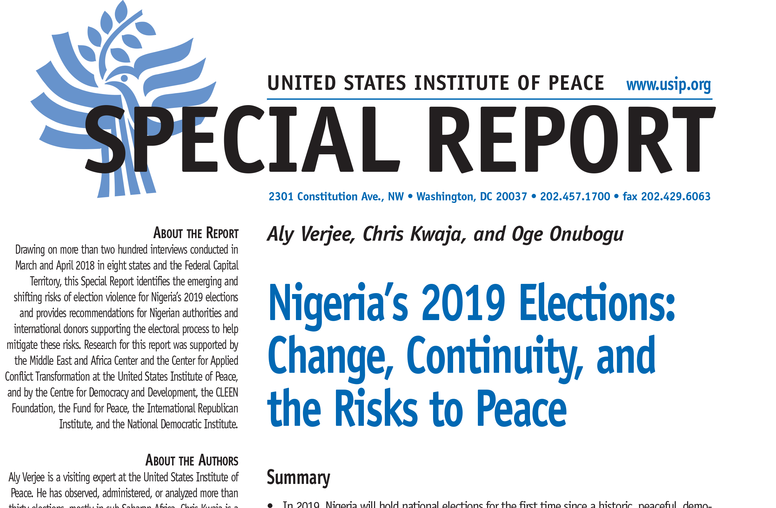
Nigeria’s 2019 Elections: Change, Continuity, and the Risks to Peace
Drawing on more than two hundred interviews conducted in March and April 2018 in eight states and the Federal Capital Territory, this Special Report identifies the emerging and shifting risks of election violence for Nigeria’s 2019 elections and provides recommendations for Nigerian authorities and international donors supporting the electoral process to help mitigate these risks.
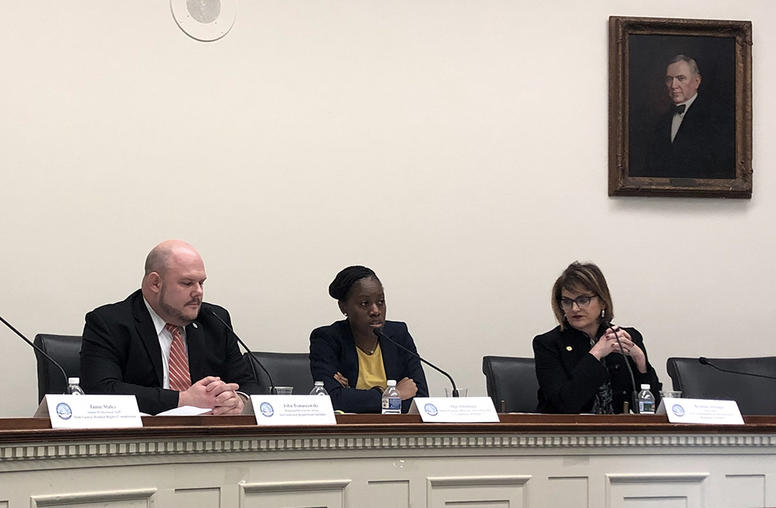
Nigeria: Elections and Human Rights
Nigeria’s keenly anticipated presidential and national assembly elections are scheduled for February 16, 2019, while the elections for state governors and state assemblies are scheduled for March 2, 2019. These elections come 20 years after the restoration of democratic, multiparty constitutional rule in Nigeria.
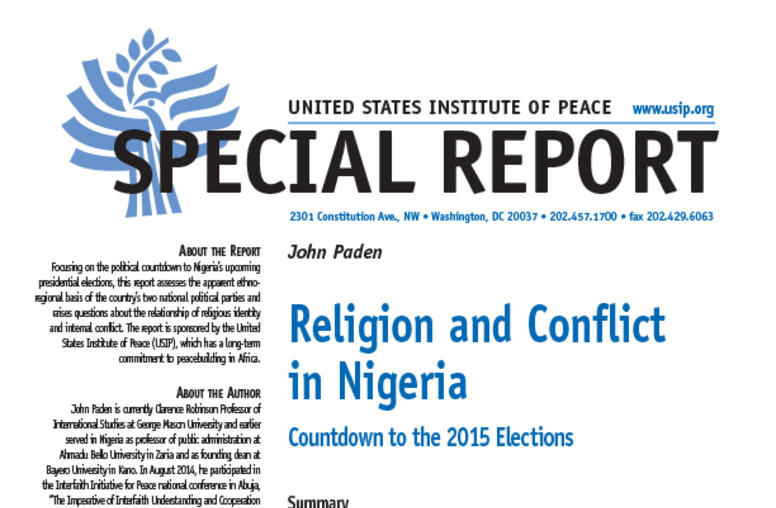
Religion and Conflict in Nigeria
Nigeria—its vast population evenly split between Muslim and Christian—is counting down to another presidential election, scheduled for February 2015. This report raises a number of questions about the relationship of religious identity and internal conflict and the consequences of a polarized election. Do religious symbols exacerbate or mitigate conflict, especially during an electoral season? What are the interfaith efforts to ameliorate or mitigate ethno-religious conflict? What are the con...
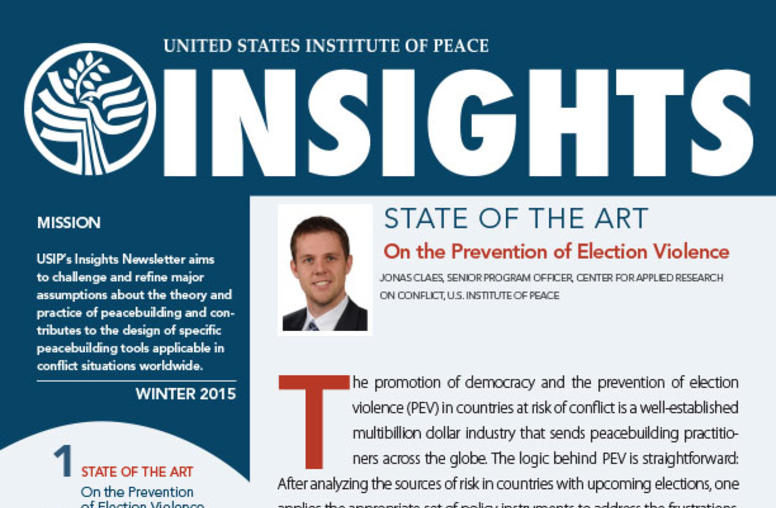
Winter 2015 Insights Newsletter – Preventing Election Violence
Insights highlights major questions on the research and practice of peace and conflict, to more than 10,000 subscribers from around the world.
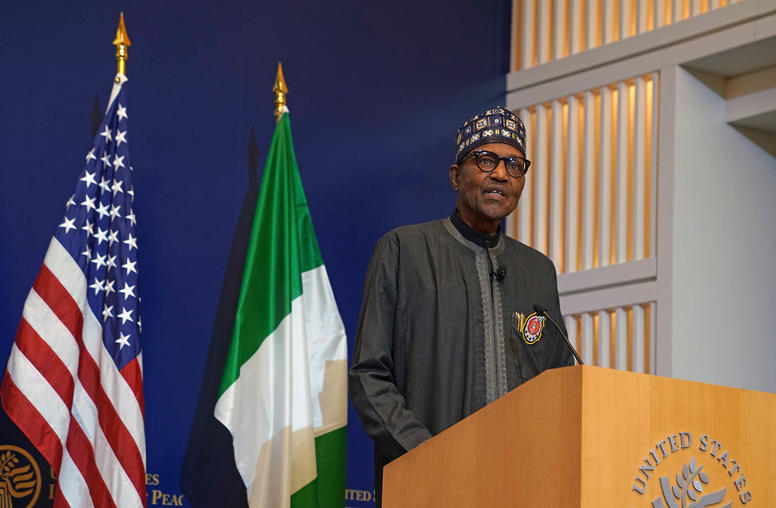
Nigeria’s Buhari Vows a Credible Election to Bolster Democracy
Nigerian President Muhammadu Buhari says he expects a credible election to choose his successor in just 10 weeks. A credible, publicly accepted result and a peaceful transfer of power could help consolidate democracy in Africa’s most populous country following democratic setbacks in the region, notably seven coups in 26 months in the Sahel and West Africa. Buhari, first elected in 2015, is completing his second term in office, the constitutional maximum, and is to hand power to his elected successor in May — an extension of democracy that Buhari has said he wants to ensure as part of his legacy to the country.
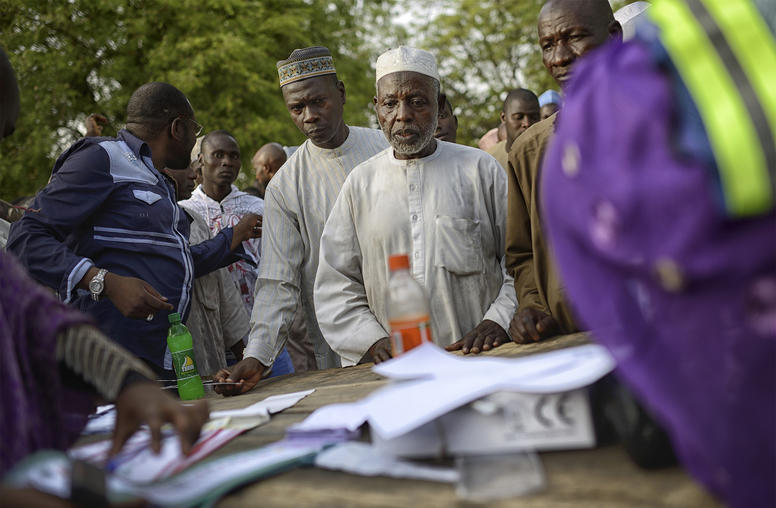
A Key Election for Nigeria Raises a Rising Demand: Inclusion
Nigerians, nearly one-sixth of all Africans, will choose a new president next week in what may be Africa’s most consequential election of 2023. A central demand amid this campaign is a better inclusion of Nigeria’s hundreds of ethnic, religious and other communities in elections and governance.
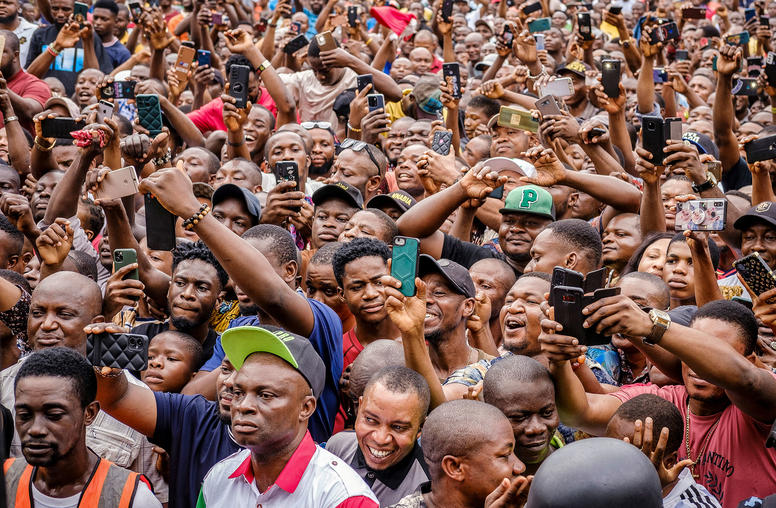
Nigeria’s Vote Signals Risks: How Its Partners Can Support Democracy
Nigeria’s disputed election 12 days ago is raising protest at home and concern abroad over its implications for the strength of democracy in that country and across Africa. Yesterday’s new wrinkle was the postponement of this week’s planned election for Nigerian state governors. Nigeria’s electoral commission is working to fix problems in a vote management system that failed to transparently process and report a result on February 25. An erosion of democracy’s credibility in Africa’s most populous nation would be catastrophic.
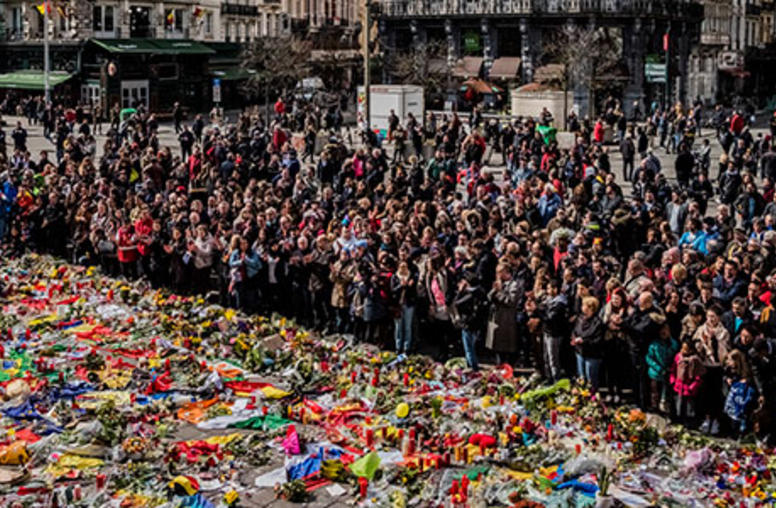
Brussels Attacks Highlight Connection to Regional Arcs of Crisis
My sympathy goes out to the survivors and families of those who died in the terrible attacks in a string of bombings over this last week -- from Brussels to Baghdad to Lahore. I was in Brussels on a business trip and was preparing to leave my hotel to catch a flight back to Washington when we got word of the explosions at the airport and the metro station there. The terror that was palpable last week in Brussels is sadly all too common in those five countries that top the list for violent extremist incidents and fatalities: Iraq, Pakistan, Afghanistan, Nigeria and Syria. And, we are increasingly seeing the outward ripples.